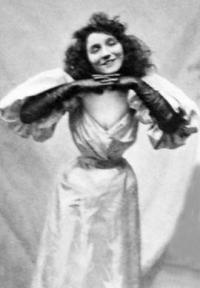| |
Show records by: listenings count | performer's rating | alphabetical
`Ah, how painful love is.` In the treatment of S. Gounod. New York, October 15, 1918. F-but Maurice Eisner.
New York, October 15, 1918. F-but Mormy Eisner. - Beranger wrote songs based on melodies that existed before him
On the bank of a stream (French folk song).Recorded May 28, 1959
`L`amour de moy`. Instrumental-Vereinigung. Recorded: July 1962, Munich.
`Au clair de la lune`. Recorded August 26-30, 1957, Munich.
Frère Jacques. Instrumental-Vereinigung. Recorded: July 1962, Munich.
Êîðñèêàíñêàÿ íàðîäíàÿ ïåñíÿ `U banditu d`onore`
Recording 1932.
|
|





